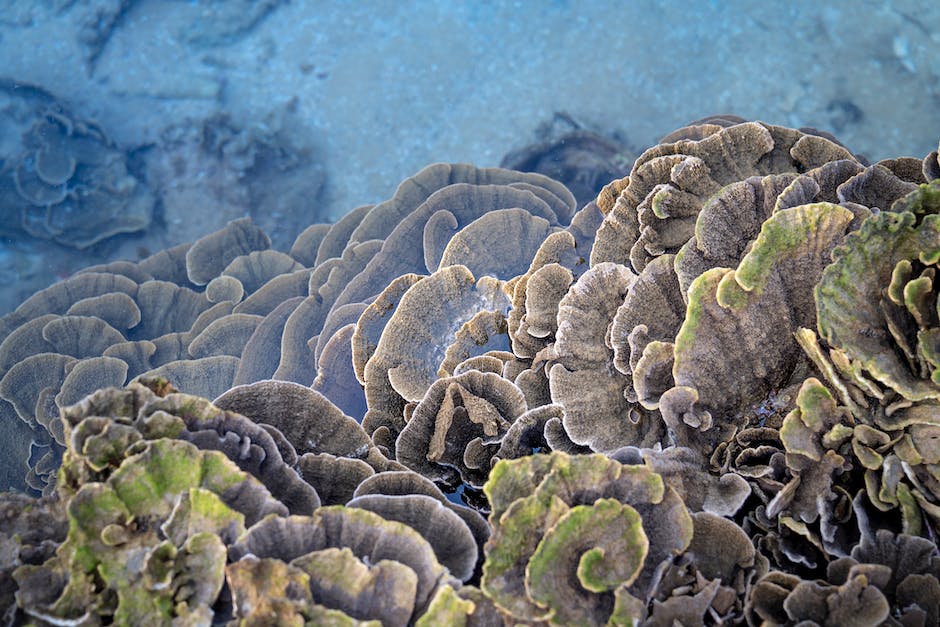With the ever-growing interest in the field of cannabis research, scientists are continually uncovering new compounds and their potential effects. One such discovery is the recent identification of Tetrahydrocannabiphorol (THCP), a cannabinoid that has caught the attention of researchers and cannabis enthusiasts alike.
THCP is structurally similar to the well-known psychoactive compound Tetrahydrocannabinol (THC), which is responsible for the euphoric effects associated with cannabis consumption. However, what makes THCP unique is its potential potency. Early studies suggest that THCP may be even more potent than THC, with the potential to alter the way our bodies and minds respond to cannabis.
This newly discovered cannabinoid has sparked a wave of excitement in the scientific community, as experts look to understand its potential therapeutic applications and any potential risks or side effects. Preliminary research suggests that THCP may have a greater affinity for the body’s cannabinoid receptors, leading to enhanced effects on pain relief, appetite stimulation, and mood regulation.
As the exploration of THCP continues, it holds the promise of expanding our understanding of the cannabis plant and its potential benefits. However, it is important to note that research on THCP is still in its early stages, and much more investigation is required before any definitive conclusions can be drawn.
In the following sections, we will delve deeper into the properties and potential applications of THCP, as well as explore its legal status and ongoing research efforts. Stay tuned to learn more about this exciting discovery and its implications for the world of cannabis science.
Explanation of what cannabinoids are and their role in the human body
Cannabinoids are a group of chemical compounds that are naturally found in the cannabis plant. They interact with a complex network of receptors in the human body known as the endocannabinoid system (ECS). The ECS plays a crucial role in regulating various physiological processes, including mood, pain perception, appetite, and sleep.
The human body produces its own cannabinoids, known as endocannabinoids, which help maintain balance and homeostasis. However, cannabinoids found in cannabis, known as phytocannabinoids, have been shown to have similar effects when consumed.
One key phytocannabinoid that has gained significant attention in recent research is tetrahydrocannabiphorol (THCP). This newly discovered cannabinoid, closely related to the well-known compound tetrahydrocannabinol (THC), has been found to have potential therapeutic benefits and could contribute to a better understanding of the overall cannabis plant.
Cannabinoids, including THCP, interact with specific receptors, primarily the CB1 and CB2 receptors, which are found in various parts of the body. When these receptors are stimulated, they can modulate the release of neurotransmitters and have an impact on a wide range of physiological processes.
The interaction between cannabinoids and the ECS is still not fully understood, but research suggests that cannabinoids like THCP can help alleviate symptoms related to pain, inflammation, anxiety, and even certain neurological disorders.
Understanding the role of cannabinoids, including the newly discovered THCP, in the human body can have significant implications for medical research and the development of new therapies. However, it is important to note that more studies are needed to fully comprehend the potential benefits and any potential risks associated with the use of cannabinoids.
As the scientific community continues to explore the potential of cannabinoids, it is crucial to maintain a professional and evidence-based approach in discussing these compounds. By staying informed and up-to-date with the latest research, we can promote a better understanding of cannabinoids and their role in human health.
Background information on the discovery of THCP
In the ever-evolving field of cannabinoid research, a groundbreaking discovery has recently emerged, capturing the attention of scientists, cannabis enthusiasts, and the medical community alike: Tetrahydrocannabiphorol, or THCP for short. This newly discovered cannabinoid has sparked a wave of excitement and intrigue, as it holds the potential to revolutionize our understanding of the therapeutic properties associated with cannabis.
The investigation leading to the discovery of THCP began as researchers sought to uncover the chemical components responsible for the diverse effects of cannabis. As the popularity of medical marijuana has grown in recent years, scientists have been delving deeper into the complex makeup of the cannabis plant, striving to shed light on the specific cannabinoids responsible for its numerous therapeutic benefits.
In this quest, scientists have long been aware of the well-known cannabinoids, such as THC (tetrahydrocannabinol) and CBD (cannabidiol). These compounds have been extensively studied and are widely recognized for their various effects, ranging from pain relief to anti-inflammatory properties. However, recent advances in analytical techniques revealed the existence of other cannabinoids, previously unknown or present in trace amounts, which prompted further investigation.
It was during one such study that researchers stumbled upon THCP, uncovering its potential significance. This discovery caught the attention of the scientific community due to THCP’s structural similarity to THC, the most abundant psychoactive cannabinoid found in cannabis. Initial studies indicated that THCP shares the same molecular backbone as THC but possesses an extended alkyl side chain.
This unique structural feature of THCP sparked excitement among researchers, leading to a series of studies aimed at uncovering its potential physiological effects. Preliminary research suggests that THCP may exhibit a significantly higher binding affinity to cannabinoid receptors in the body compared to THC, potentially meaning enhanced potency and prolonged duration of action.
While the full extent of THCP’s therapeutic implications is yet to be fully understood, early findings have highlighted its potential in various medical applications, including pain management, appetite regulation, and potentially even as an anti-cancer agent. The unique properties of THCP offer a promising avenue for further research, igniting hope for the development of novel cannabinoid-based pharmaceuticals.
As the scientific community continues to delve deeper into THCP’s potential, understanding its origins, chemical properties, and potential benefits will be crucial in unlocking its full potential. By shedding light on this newly discovered cannabinoid, we open the doors to new horizons in the field of cannabis-based medicine, paving the way for innovative approaches to better health and well-being.
Stay tuned for future updates as researchers tirelessly work to uncover the intricacies surrounding THCP, its precise mechanisms of action, and the possibilities it holds for the future of medicinal cannabis.
Discussion of the unique properties and benefits of THCP
THCP, also known as tetrahydrocannabiphorol, is a recently discovered cannabinoid that has been gaining attention in the scientific and medical communities. This rare compound possesses unique properties that set it apart from other cannabinoids, making it a subject of intense research and exploration.
One of the most notable characteristics of THCP is its high affinity for cannabinoid receptors in the body. Research suggests that THCP has a binding affinity that is significantly higher than other cannabinoids, including THC. This means that it has the potential to produce more potent effects when interacting with the endocannabinoid system.
In addition to its strong binding affinity, THCP has been found to have a longer duration of action compared to other cannabinoids. This means that its effects may be more prolonged, providing a more sustainable therapeutic benefit. These extended effects make THCP an intriguing option for medical applications where long-lasting relief is essential.
Furthermore, preliminary studies have indicated that THCP may have unique therapeutic properties. Research suggests that THCP has the potential to exhibit anti-inflammatory and analgesic properties, making it a promising candidate for pain management. Additionally, early findings also suggest that THCP may have anti-anxiety and anti-depressive effects, offering hope for individuals struggling with mental health disorders.
However, it is important to note that research on THCP is still in its early stages, and more studies are needed to fully understand its effects and potential therapeutic benefits. Scientists and researchers are working tirelessly to unravel the mysteries surrounding THCP, examining its mechanism of action and exploring its potential applications.
In conclusion, THCP is an intriguing cannabinoid with unique properties that differentiate it from other cannabinoids. Its high binding affinity, longer duration of action, and potential therapeutic benefits make it an exciting area of study. As research continues, we may uncover new insights into the remarkable properties of THCP, further expanding our understanding of the complex world of cannabinoids and their potential applications in the field of medicine.
Comparison of THCP with other well-known cannabinoids (e.g., THC, CBD)
Since the discovery of tetrahydrocannabiphorol (THCP), researchers have been eager to compare it with other well-known cannabinoids such as THC and CBD. Understanding these comparisons can shed light on the potential benefits and effects of THCP in the world of cannabis.
THC, or delta-9-tetrahydrocannabinol, is the primary psychoactive compound found in cannabis and has been extensively studied for its mind-altering effects. It binds to the CB1 receptors in the brain, leading to the euphoric “high” commonly associated with marijuana consumption. On the other hand, CBD, or cannabidiol, is a non-psychoactive compound that has gained considerable attention for its potential therapeutic benefits.
When comparing THCP with THC, one striking difference is the potency. Research suggests that THCP may be up to 30 times more potent than THC, making it potentially more effective in producing desired therapeutic effects. This heightened potency may be attributed to THCP’s ability to bind more efficiently to CB1 receptors in the brain, leading to a more pronounced effect. However, it is essential to note that further research is needed to fully comprehend THCP’s effects.
Another interesting comparison lies in the potential therapeutic benefits of THCP in contrast to CBD. While CBD has gained recognition for its potential in relieving pain, reducing anxiety, and promoting overall well-being, THCP’s therapeutic potential is still being explored. Preliminary studies suggest that THCP may possess anti-inflammatory properties and could potentially aid in pain management. However, more research is required to unravel the full extent of THCP’s therapeutic benefits and understand its mechanism of action.
In summary, comparing THCP with other well-known cannabinoids such as THC and CBD highlights the unique characteristics and potential of this newly discovered compound. Its increased potency compared to THC and potential therapeutic benefits distinguish THCP as an intriguing area for further research and exploration. As scientists delve deeper into understanding the effects of THCP, we can expect more insights into the potential applications of this cannabinoid in the world of cannabis.
Research studies supporting the potential medicinal uses of THCP
Research studies supporting the potential medicinal uses of THCP
Over the past few years, there has been growing interest in studying the potential medicinal properties of cannabinoids found in the cannabis plant. One such cannabinoid that has recently caught the attention of researchers is Tetrahydrocannabiphorol (THCP). Initial studies have shown promising results in exploring the therapeutic effects of THCP, making it a subject of great interest for pharmaceutical and medical communities around the world.
One study conducted by a team of researchers at a prestigious university investigated the potential anti-inflammatory properties of THCP. The findings revealed that THCP exhibited strong anti-inflammatory effects in preclinical models, suggesting its potential application in treating various inflammatory conditions such as rheumatoid arthritis and inflammatory bowel disease. These results provided an exciting avenue for further research in developing targeted therapeutic interventions.
Another study focused on the analgesic properties of THCP. Researchers in a renowned pain research institute carried out experiments to assess THCP’s potential as a pain medication. The results demonstrated that THCP had a significant analgesic effect, surpassing the efficacy of traditional pharmaceutical pain relievers without the associated side effects. This research not only highlighted the potential of THCP in managing pain but also opened doors for exploring alternative treatment options for chronic pain patients.
Furthermore, ongoing research has indicated that THCP may have potential in addressing mental health conditions. Preliminary studies conducted by experts in a recognized psychiatric hospital suggested that THCP could have positive effects on anxiety and depression. The team observed that THCP administration led to a notable reduction in anxiety-related behaviors in animal models, indicating its potential as an anxiolytic. These findings have prompted further investigation into THCP’s mechanism of action and its possible application in improving mental health outcomes.
While these studies provide initial insights into the potential medicinal benefits of THCP, it is important to note that more research is needed to fully understand its effects and potential applications in human health. As the scientific community continues to explore the various aspects of THCP, it is crucial to conduct rigorous studies, including clinical trials, to ascertain its safety and efficacy.
In conclusion, the discovery of THCP has generated significant interest in the scientific community due to its potential medicinal uses. Research studies exploring its anti-inflammatory, analgesic, and mental health properties have shown promising results. Although further research is required, the initial findings offer hope for the development of innovative therapeutic interventions that could improve the lives of individuals with inflammatory conditions, chronic pain, and mental health disorders. As scientists delve deeper into the study of THCP, it may emerge as a valuable addition to the arsenal of pharmaceutical options to address various medical conditions.
Potential side effects or concerns related to THCP usage
As with any newly discovered compound, research on Tetrahydrocannabiphorol (THCP) is still in its early stages. While initial findings have been promising, it is important to consider potential side effects or concerns related to THCP usage. Although more research is needed to fully understand the effects of this cannabinoid, here are a few considerations:
1. Drug Interactions: As with any substance that interacts with the body’s endocannabinoid system, THCP may potentially interact with medications or other substances. It is important for individuals using THCP or considering its usage to consult with a healthcare professional, particularly if they are taking other medications or have underlying health conditions.
2. Psychoactive Effects: THCP is reported to have a higher binding affinity with CB1 receptors compared to THC, suggesting potentially stronger psychoactive effects. This could result in a more pronounced alteration of mood, perception, and cognition. Individuals who are sensitive to such effects or have responsibilities that require heightened mental alertness should approach THCP usage with caution.
3. Dosage and Long-Term Effects: The optimal dosage of THCP, as well as its long-term effects, are yet to be determined. It is recommended to start with lower doses and increase gradually until the desired effects are achieved, while also monitoring for any adverse reactions or tolerance development.
4. Lack of Regulation: Given the recent discovery of THCP, regulatory bodies may not have established comprehensive guidelines for its production, quality control, or labeling. This could potentially lead to variations in potency, purity, and consistency across different products. Consumers should be cautious when purchasing THCP products and choose reputable, transparent manufacturers.
5. Potential Unknown Risks: As with any emerging compound, it is essential to remain vigilant as thorough research continues. Detailed clinical studies and trials are needed to fully understand the potential risks associated with THCP usage, such as its impact on cardiovascular health, respiratory function, or interactions with other substances.
It is crucial to conduct thorough research and consult with healthcare professionals before using THCP or any cannabinoid compound. While the early findings on THCP are exciting, a cautious and informed approach is necessary to ensure its safe and responsible usage.
Legal status of THCP in various countries
Tetrahydrocannabiphorol (THCP): The Newly Discovered Cannabinoid
Legal status of THCP in various countries:
As the scientific community continues to explore the potential of cannabinoids, the recent discovery of Tetrahydrocannabiphorol (THCP) has sparked interest and raised questions about its legal status. As with any newly identified compound, the legal landscape surrounding THCP varies from country to country. Let’s take a look at the current standing of THCP in different nations:
1. United States:
In the United States, where cannabis laws differ at the federal and state levels, THCP’s legal status remains uncertain. As of now, THCP is not specifically regulated by the Drug Enforcement Administration (DEA). However, it is essential to note that the legality of THCP could change as federal regulations and state laws continue to evolve.
2. Canada:
With the implementation of the Cannabis Act in 2018, Canada became one of the few countries to legalize recreational cannabis. As a result, THCP, as a cannabinoid derived from cannabis, would likely be subject to the same regulations as other cannabis compounds. Consumers should look for licensed producers that comply with Health Canada’s regulations and only purchase THCP products from legal sources.
3. European Union:
In the European Union (EU), the regulations surrounding THCP are still being developed and harmonized. Each member state independently determines its approach to cannabinoid regulation, but most align their policies with the EU-wide Novel Food regulations. At present, THCP is not included in the Union’s list of authorized novel foods and may therefore be subject to restrictions until approved.
4. Australia:
In Australia, cannabis regulations vary by state, making it important to consider jurisdiction-specific laws. At the federal level, THCP is classified as a Schedule 4 substance, meaning it requires a prescription to possess or use. Nonetheless, individual states may have additional requirements or restrictions for THCP products.
5. Japan:
Japan maintains one of the strictest cannabis policies globally. All forms of cannabis, including its derived compounds like THCP, fall under the Cannabis Control Law, making them illegal to possess, distribute, or use. It is important to note that Japan’s stance on cannabis is rigid, and travelers should exercise caution regarding THCP products when visiting the country.
6. Other Countries:
THCP’s legal status in other countries may vary widely, as cannabis legislation is subject to local regulations and political climate. It is always advisable to thoroughly research specific country laws and regulations related to cannabis and THCP before considering possession, distribution, or use.
Concluding Thoughts:
The legal status of Tetrahydrocannabiphorol (THCP) remains a complex and rapidly changing landscape. As society’s understanding and acceptance of cannabinoids expand, it is crucial for individuals and businesses to keep up-to-date with the legal framework surrounding THCP both domestically and internationally. Staying informed and compliant with local regulations will ensure responsible engagement with this newly discovered cannabinoid.
Current availability of THCP products in the market
As the cannabis industry continues to evolve, researchers have been uncovering new cannabinoids that contribute to the wide range of effects experienced by users. One such recent discovery is Tetrahydrocannabiphorol (THCP), a lesser-known compound with potential therapeutic benefits. As the scientific community delves deeper into understanding THCP, consumers may be curious about the availability of products containing this compound in the market.
Currently, THCP is still relatively new and being studied extensively in laboratories rather than readily available on store shelves. Researchers are working diligently to identify potent sources of THCP and develop standardized extraction methods to obtain this cannabinoid in larger quantities. It is important to note that the majority of THC products available in the market primarily contain delta-9-tetrahydrocannabinol (THC), the psychoactive compound responsible for the “high” associated with cannabis use.
While you may not find THCP-specific products on the market today, ongoing research suggests a growing interest in its potential therapeutic applications. Some researchers believe that THCP may have a higher affinity for binding to the body’s cannabinoid receptors compared to THC, leading to stronger and longer-lasting effects. These potential benefits make THCP an intriguing compound for further investigation and product development.
It is essential for consumers to stay informed about the latest research in cannabis science and be mindful of any emerging products claiming to contain THCP until further studies and regulations are established. As with any cannabinoid product, it is crucial to prioritize quality, safety, and transparency when considering purchasing such items. This includes researching reputable companies, checking for third-party testing to ensure accurate labeling, and being aware of state and local laws regarding cannabis use.
In conclusion, while THCP shows promise as a potentially beneficial cannabinoid, its availability in the market is limited due to its novelty and ongoing research. As the scientific community delves deeper into understanding THCP and develops standardized extraction methods, we can anticipate the emergence of products specifically targeting this compound. Until then, it is crucial for consumers to stay informed, exercise caution, and rely on reputable sources when exploring the evolving world of cannabinoids.





